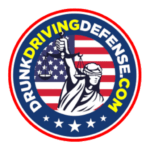Things Not to Say to the Police if You’re Pulled Over
No single answer will suffice for all people in all situations. For example, if an accident has occurred involving serious bodily injury or the death of another person, you may have no choice but to either voluntarily submit to testing or suffer forcible blood or urine extraction. Plus, many jurisdictions will revoke or suspend your license for ATTEMPTING to refuse, plus forcibly take your blood and urine anyway.
Also, advice for underage drivers in one state will not be good advice for underage drivers in another state. For example, knowledgeable DUI-DWI defense attorneys in California generally will tell drivers under age 21 to submit to the roadside PBT (preliminary breath testing) unit, yet tell drivers aged 21 and over to NOT submit to it. The California DUI-DWI specialist will also advise all persons asked by law enforcement officers in that state to take a state-administered breath test to DECLINE it in favor of having blood drawn so that the sample can later be independently analyzed.
For over 20 years, Atlanta DUI lawyer William C, Head has utilized “Driver’s Rights Cards” for clients stopped for suspected DUI-DWI in Georgia. These cards contain specific advisements that are also “variable,” depending upon the situation. If Georgia law changes at the next legislative session, this advice might change, but it is applicable for now. A current copy is maintained on several websites created by the author.
CAUTION: No claim of accuracy for drivers in other states is made by referring to these Georgia-specific cards. Ask your local DUI-DWI specialist about how to handle an arrest situation in your state. In dealing with the police, here are five universally sound things to do that will protect your legal rights if stopped:
Here is what not to tell the police if you’re pulled over:
1. Don’t Agree To Anything
If asked (or told) about an alleged traffic violation, do not try to appease the officer by agreeing with him or her that you committed some traffic offense. Don’t get belligerent. Instead say, “Actually, sir (or ma’am), I believe I stayed entirely within my lane,” or some other appropriate explanation. Remember, everything you are saying is being recorded, and your DUI-DWI attorney may be able to use the favorable things said by you in your favor.
2. Don’t Admit to Anything
If asked about alcohol use or drugs, either admit nothing or blame it on your bottle of mouthwash. [E.g., “I just brushed my teeth!”] Don’t incriminate yourself by admitting that you consumed “only two glasses of wine with dinner.”
3. Present Documentation
If asked for your license or any documents, have them ready to show the officer. Do not voluntarily get out of your vehicle for something stupid, like to go see the radar calibration to prove that your radar reading for a speeding ticket was correct. Stay inside the vehicle, seated, with your hands visible on the steering wheel. If the officer asks you to step out of the vehicle, explain that you prefer not to get out, due to safety concerns. If the officer claims to smell or detect alcohol or drugs, do not admit to having consumed anything. Just ask, “Am I under arrest?” The officer will say something like, “I need to give you some field evaluations to make sure you are safe to be on your way home.”
This seems rather innocuous until the officer “claims” that you failed or performed poorly on the field evaluations. Politely say, “Thank you officer, but unless I have my attorney present, I’d prefer NOT to try to perform agility exercises or medical tests that I am not familiar with.” You can expect to be cajoled, prodded, and verbally challenged as to why you are refusing to participate in these “simple tests.” Do not let the officer start any evaluations. Only when he or she ORDERS you to get out, and physically opens your door should you reluctantly leave your car.
4. Don’t Do Anything Unless Specifically Asked To
Once out of the car, do nothing and walk nowhere other than where he or she insists, or forces you to go. Explain your desire to not get out of the car at the roadside, and your desire not to be asked to walk, balance, count, or perform any voluntary roadside evaluations of any type. If offered a hand-held breathalyzer, decline doing it, if you can. If asked, “Why not blow if you haven’t been drinking?” tell the officer that you have no confidence in battery-powered devices that could either be inaccurate or carry bacteria, germs, and diseases such as tuberculosis.
5. Call You DUI Attorney
Ask to call your DUI attorney on your cell phone as soon as the officer starts getting “pushy.” Also state to the officer that you are willing to satisfy his concerns for safety by handing him your keys and either walking home or taking a cab home, but that you will not submit to testing that you do not trust to be reliable or accurate. If he says, “So you don’t think you are safe to drive?” or something similar, be sure to say, “Absolutely not true. I am merely trying to satisfy you that I am cooperative in every way, even if I believe your concerns are not reasonable.”
If taking Uber or Lyft results in your car being towed, that is a small price to pay to avoid being arrested and possibly convicted of DUI-DWI.
Find The Top-Rated DUI Lawyers Near You
We have listings for the top DUI lawyers in all 50 states and the District of Columbia. Find the best DUI lawyer for you by clicking on your state here.


